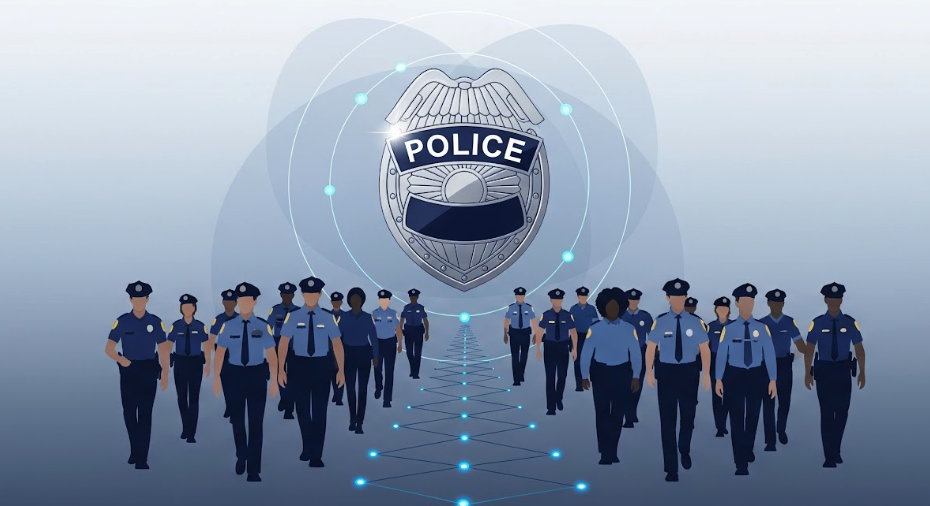
When Congress fails to pass funding legislation and the federal government shuts down, the consequences extend far beyond Washington politics. For law enforcement agencies at every level, these funding lapses create operational challenges, financial uncertainty, and recruitment obstacles that can persist long after normal operations resume.
The Immediate Impact on Federal Law Enforcement
During a government shutdown, federal law enforcement officers are deemed "essential" and must continue working—but without receiving paychecks until the funding crisis resolves. The current 2025 shutdown has placed approximately 200,000 federal law enforcement personnel in this precarious position, including agents from the FBI, DEA, ATF, U.S. Marshals, Border Patrol, and ICE. While recent executive actions have ensured pay for some federal officers, the uncertainty surrounding compensation creates significant personal and professional stress.
Beyond the paycheck issue, federal agencies face operational constraints during shutdowns. Training programs are suspended, hiring processes freeze, and grant disbursements halt. The FBI Agents Association has warned that prolonged shutdowns force the Bureau to "curtail travel, training, hiring and other vital operations, slowing investigations and weakening coordination with law enforcement partners". These disruptions don't just affect federal operations—they cascade down to state and local agencies that depend on federal partnerships.
How Local and Regional Services Feel the Pinch
While government shutdowns primarily target federal operations, the impact ripples through every layer of public safety. Local police departments and sheriff's offices rely heavily on federal grants, intelligence sharing, joint task force operations, and technical support—all of which slow or stall during funding lapses.
Grant Processing Challenges
Grant processing represents one of the most significant challenges for local agencies. During shutdowns, federal grant staff are furloughed, meaning applications aren't processed, funds aren't disbursed, and technical assistance becomes unavailable. For departments that have budgeted around expected federal funding for equipment, technology, or personnel, these delays can force difficult resource allocation decisions. Existing grant-funded projects may continue, but agencies won't receive reimbursements until federal operations resume.
Intelligence Sharing and Joint Operations
Intelligence sharing and joint operations also suffer disruptions. Local agencies working with federal counterparts on task forces may experience coordination gaps, data access delays, and reduced support capabilities. During the 2018-2019 shutdown—the longest in U.S. history at 35 days—these partnership disruptions affected ongoing investigations and community safety initiatives across the country.
Emergency Response Coordination
Emergency response coordination presents another vulnerability. While FEMA's Disaster Relief Fund continues operating during shutdowns, administrative functions like application reviews and funding approvals face delays. For communities recovering from natural disasters or preparing for emergencies, these bureaucratic slowdowns can have serious consequences.
The Recruiting Challenge: Uncertainty as a Deterrent
Perhaps the most insidious long-term impact of government shutdowns involves their effect on law enforcement recruitment—a function already facing crisis-level challenges nationwide. According to the International Association of Chiefs of Police, over 70% of agencies report that recruitment has become more difficult compared to five years ago, with departments currently operating at just 91% of authorized staffing levels.
Government shutdowns exacerbate these recruitment struggles in multiple ways:
Disincentive for Federal Law Enforcement Careers
First, they create a powerful disincentive for prospective applicants considering careers in federal law enforcement. As one federal law enforcement association official noted, "It's very hard to look at a family and tell them you are working for no pay". The specter of periodic shutdowns, combined with hiring freezes and reduction-in-force threats, makes federal law enforcement careers appear increasingly unstable to potential recruits.
Disrupted Recruitment Operations
For agencies dependent on federal funding, recruitment efforts often stall during shutdowns. Training academy operations may be disrupted, background check processing slows, and hiring decisions get postponed. The University of North Georgia's ROTC cadets, for example, saw their stipends, tuition payments, and room and board placed on hold during recent shutdown threats.
Historical Patterns: What the Data Tells Us
While comprehensive historical data on recruitment trends during specific government shutdowns remains limited, available evidence suggests that funding uncertainty correlates with staffing challenges. The federal hiring freeze implemented in January 2025 exempted positions related to immigration enforcement, national security, and public safety but still created recruitment obstacles across agencies.
Research on police staffing trends shows that external crises consistently affect recruitment and retention. During the COVID-19 pandemic and the aftermath of George Floyd's killing, police departments experienced dramatic increases in resignations and decreases in applicants—patterns that took years to reverse. While government shutdowns represent different stressors than these events, they similarly contribute to perceptions that law enforcement careers involve instability and insufficient support.
Academy Graduation Concerns
Academy graduation rates have remained a persistent concern regardless of shutdown status. Recent data from New Orleans shows academy classes graduating as few as 28% of starting cadets, while Oregon's police academy enrollment forecasts suggest modest growth but continued vulnerability to external disruptions.
The Road Ahead for Law Enforcement Leaders
For law enforcement executives, preparing for potential government shutdowns means developing contingency plans, maintaining open communication with federal partners, and building financial reserves to weather funding disruptions. Most critically, agencies must recognize that recruitment challenges extend beyond compensation and benefits—they reflect broader concerns about career stability, organizational support, and public perception.
Key Strategies for Agency Leaders
- Develop Contingency Plans - Create financial and operational backup plans to maintain operations during funding disruptions
- Maintain Federal Partnerships - Keep communication channels open with federal partners to minimize coordination gaps
- Build Financial Reserves - Establish emergency funds to bridge gaps during grant processing delays
- Address Perception Issues - Proactively communicate career stability and organizational support to potential recruits
- Diversify Funding Sources - Reduce dependency on single funding streams vulnerable to political disruptions
The Bottom Line
As shutdowns become increasingly common political tools, their cumulative effect on law enforcement recruitment and retention may prove more damaging than any single funding lapse. The profession needs not just competitive salaries but also the stability and respect that attract quality candidates willing to serve their communities.
For agencies navigating this challenging landscape, the key is to recognize that recruitment success in 2025 and beyond requires addressing both the immediate financial impacts and the longer-term perception that law enforcement careers are becoming increasingly uncertain. Only by tackling both dimensions can agencies hope to maintain the staffing levels necessary to serve and protect their communities effectively.
References and Sources
This analysis draws from extensive research and reporting on government shutdowns and their impact on law enforcement:
- Shutdown Politics Put National Security and Local Policing at Risk
- IACP Government Shutdown Updates
- Federal Law Enforcement Receive Pay During Shutdown
- FBI Pay During Government Shutdown
- Federal Government Shutdown Impacts Local Public Safety
- Navigating Federal Grants During Shutdown
- Government Shutdowns in the United States
- Impact of Government Shutdown on Disaster Response
- The State of Recruitment: A Crisis for Law Enforcement
- 2024 IACP Recruitment & Retention Survey Results
- Federal Hiring Freeze Executive Order
- Police Officer Hiring Trends 2023
- Police Workforce Survey March 2022
- NOPD Academy Low Graduation Rates
- Oregon Police Academy Forecasting Report
- State of Police Recruitment and Retention
The challenges posed by government shutdowns add another layer to an already complex recruitment environment. To learn more about how modern recruitment tools can help your agency maintain consistency despite external disruptions, explore our solutions.



